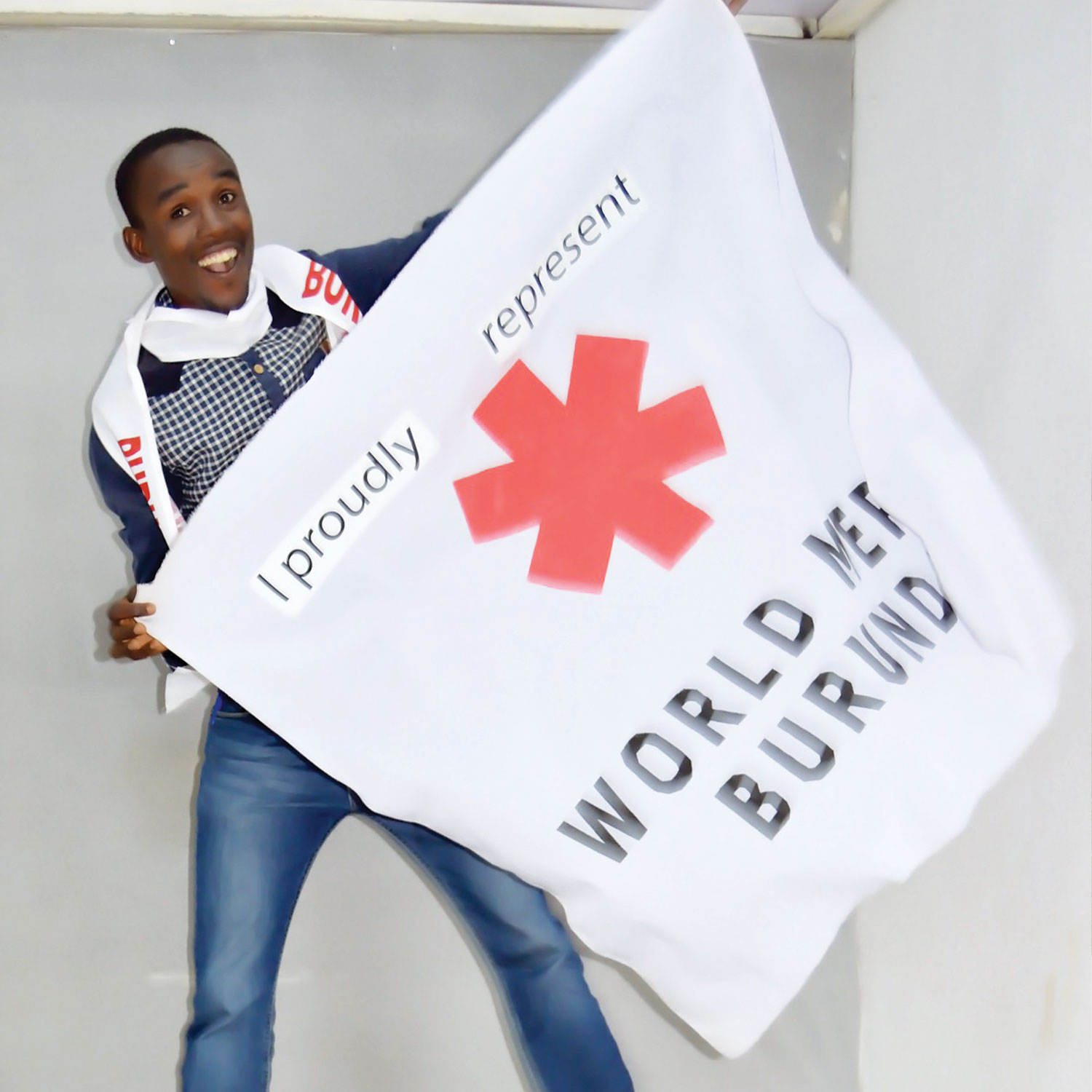
“After watching Kayayo and seeing the spark it ignited in the students, I have no doubt that film has the potential to change the world. For a minute, we felt like the girl was in the room with us, telling us her story and inviting us into her reality. I think if we can learn more and more about the hardships, the successes, the ups and downs of our fellow humans, we have a much better chance of achieving the SDGS by 2030. We are very excited to see what comes out of the subsequent enterprise clubs.”
— Léonidas Nzigamasabo
Léonidas Nzigamasabo is a student at Light University in Burundi and the President of World Merit Burundi. For the SIMA Academy Impact Challenge, Léonidas chose to screen the film KAYAYO to advocate for SDG 1, the Sustainable Development goal focused on Poverty. The film screening was followed by a panel with local experts to discuss entrepreneurship as a way to eradicate poverty. Over 250 College students attended. Léonidas also won the 2019 SIMA +World Merit Challenge where he was the 1st Prize Winner, he received 500.00 USD from SIMA, free access to SIMA Academy.
Why did you choose the SIMA Academy film, “Kayayo, The Living Shopping Baskets”?
Being ranked as the second poorest country in the world, Burundians face a tremendous amount of hardships day after day. Burundi is both landlocked and resource poor with an underdeveloped manufacturing sector which makes it very difficult to survive, thus making the country heavily dependent on foreign aid. As a result of Burundi’s poverty situation, the median age in Burundi is 17 years old with about 46 percent of the population being 14 years of age or younger. Burundi’s government aims to provide free basic education, but a lack of funds makes it difficult to acquire the number of teachers and tools necessary for the cause. Drop-out rates of students are also exceedingly high due to hunger. With this being the country context,it was fitting to focus our screening on SDG 1 “No Poverty” because World Merit Burundi is passionate about empowering our youth to work themselves out of poverty using innovation, entrepreneurship and determination. The story of Kayoyo demonstrated that there are others, not only Burundians who suffer poverty and that if the young girl in the film can be resilient, then so can we.
How did the screening meet your objectives for the overall event?
Our objectives were met in several ways. Firstly, the students discovered through the video that they can succeed in life even though they have no capital to begin with. The young lady in the film gave participants ideas of how even youth can create enterprising opportunities, despite the life they may have today. It also encouraged an entrepreneurial spirit that resulted in several participants deciding to create an “Entrepreneurial Club” at the University. The club will offer peer support, skills exchange and provide a hub for developing enterprises. This was a great step forward for the students who now understood entrepreneurship theories but could not put them into practical steps to become entrepreneurs and to eradicate poverty.
What were the main topics of discussion at the event?
Following the screening we held a lecture and then a panel discussion at Bujumbura Light University. The panel was made up of representatives from Innova Group, YALI and RLC., The main topics discussed were how young people in Burundi could begin a life as an entrepreneur and how they could collectively use social media to drive forward enterprise and ultimately to eradicate poverty.
Did the event inspire a campaign and/or new relationships between panelists, audience members or organizations?
After showing the film of Kayayo, we were blown away by the enthusiasm shown and the appetite to learn about other people’s lives and how they overcome their burdens. As such, we entered talks with the University about the possibility of showing one SDG film per month and focusing on that. Furthermore, given the success of the screening, lecture and discussion, the university is recommending that we roll out this approach to four other institutions to make this a nationwide knowledge sharing movement.